How to Write a Letter to Get Out of Jury Duty Template
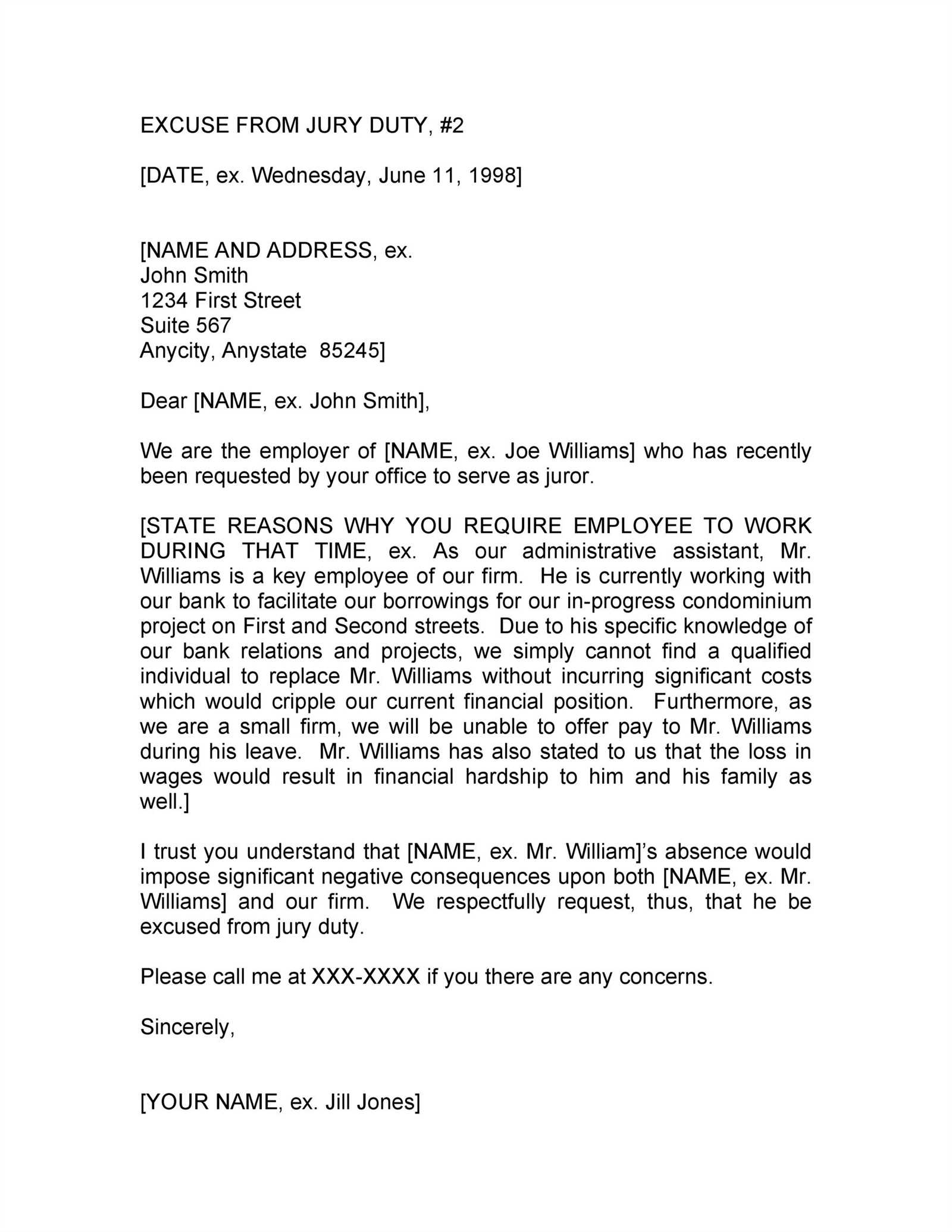
Being selected for a civic responsibility can often disrupt your personal schedule or work commitments. In certain situations, you may need to seek an exemption or delay from fulfilling this obligation. Knowing how to properly communicate your request is key to ensuring that your application is considered seriously.
There are specific guidelines you must follow to submit a valid request for postponement or exemption. This article will guide you through the process, providing advice on what to include, how to present your case, and common mistakes to avoid. With the right approach, you can improve the chances of having your request granted.
Reasons to Request Exemption from Civic Service
There are various valid reasons why an individual may need to seek relief from fulfilling civic obligations. Whether due to personal circumstances, professional responsibilities, or health concerns, it’s important to know the grounds for requesting a deferral or exemption. Understanding these reasons will help ensure that your request is based on legitimate grounds and has a higher chance of approval.
Common Grounds for Deferral
- Health Issues: Serious medical conditions or mental health challenges may prevent someone from performing their civic responsibilities. If this is the case, a doctor’s note or medical records may be required to support the request.
- Financial Hardship: For individuals who rely heavily on their income, serving could result in financial strain, especially if compensation is lower than their usual wage.
- Caregiver Responsibilities: Those who are primary caregivers for dependents, whether children, elderly parents, or relatives with disabilities, may find it difficult to participate without impacting their family’s well-being.
- Travel or Relocation: If you are scheduled to be out of town for work, study, or personal reasons, this can be a valid excuse for postponing your obligations.
Other Valid Exemptions
- Age: In some areas, individuals above a certain age may be automatically excused from fulfilling the civic obligation.
- Conflicting Work Schedule: If your professional commitments are critical or involve specialized skills that cannot be easily replaced, this may serve as a valid justification for exemption.
- Conflict of Interest: If you have a personal relationship with a party involved in the case or if your personal beliefs would interfere with making an impartial decision, you may be excused from service.
Understanding the Legal Grounds for Deferral
In many cases, individuals are legally permitted to request a deferral or exemption from fulfilling civic responsibilities. However, it’s essential to understand that these requests must be based on recognized and legitimate reasons according to the law. Certain conditions and circumstances are considered valid grounds for postponing or being excused from such obligations.
The law typically allows for deferments in cases where fulfilling the requirement would cause significant hardship or conflict. These legal grounds vary depending on the jurisdiction but generally include factors such as personal health, financial hardship, or other pressing obligations that would make participation difficult or impossible. Understanding what qualifies as a valid reason can help ensure your request is both appropriate and more likely to be granted.
Eligibility Criteria
While the specifics may differ by location, most jurisdictions have clear criteria for eligibility. For instance, medical conditions that significantly impair your ability to serve may be grounds for relief. Likewise, individuals who are the primary caregivers for family members or those facing financial hardship due to the loss of income may also qualify for a deferral.
Documentation Requirements
It is common to be asked for supporting documentation when requesting a postponement or exemption. This may include medical records, proof of income, or statements that detail your caregiving responsibilities. Ensuring you have the necessary documentation in advance can streamline the process and improve the chances of your request being accepted.
Steps to Write Your Request for Deferral
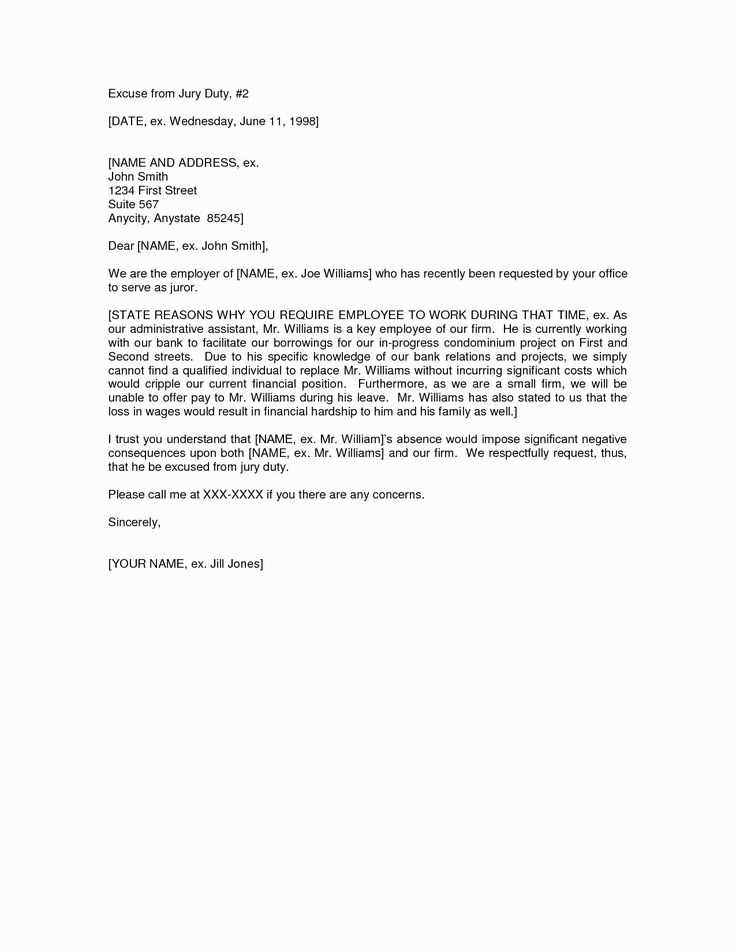
Writing a formal request to be excused from a civic obligation involves presenting a clear, concise, and well-organized case. This process requires careful attention to detail to ensure your communication is both professional and persuasive. By following a few simple steps, you can effectively craft your request and increase the likelihood of approval.
Start by addressing the appropriate authority and including any necessary identifying information, such as your case number or reference code. Clearly state the reason for your request, ensuring that it aligns with recognized grounds for exemption or deferral. Providing supporting documentation, such as medical certificates or financial statements, will strengthen your case and demonstrate the legitimacy of your claim.
Next, it is essential to express your understanding of the importance of the obligation, while respectfully requesting relief. Be polite and professional throughout the communication, as this conveys your seriousness and respect for the process. Ensure that your letter is free from errors and follows any specific instructions provided by the relevant authorities.
Important Details to Include in Your Request
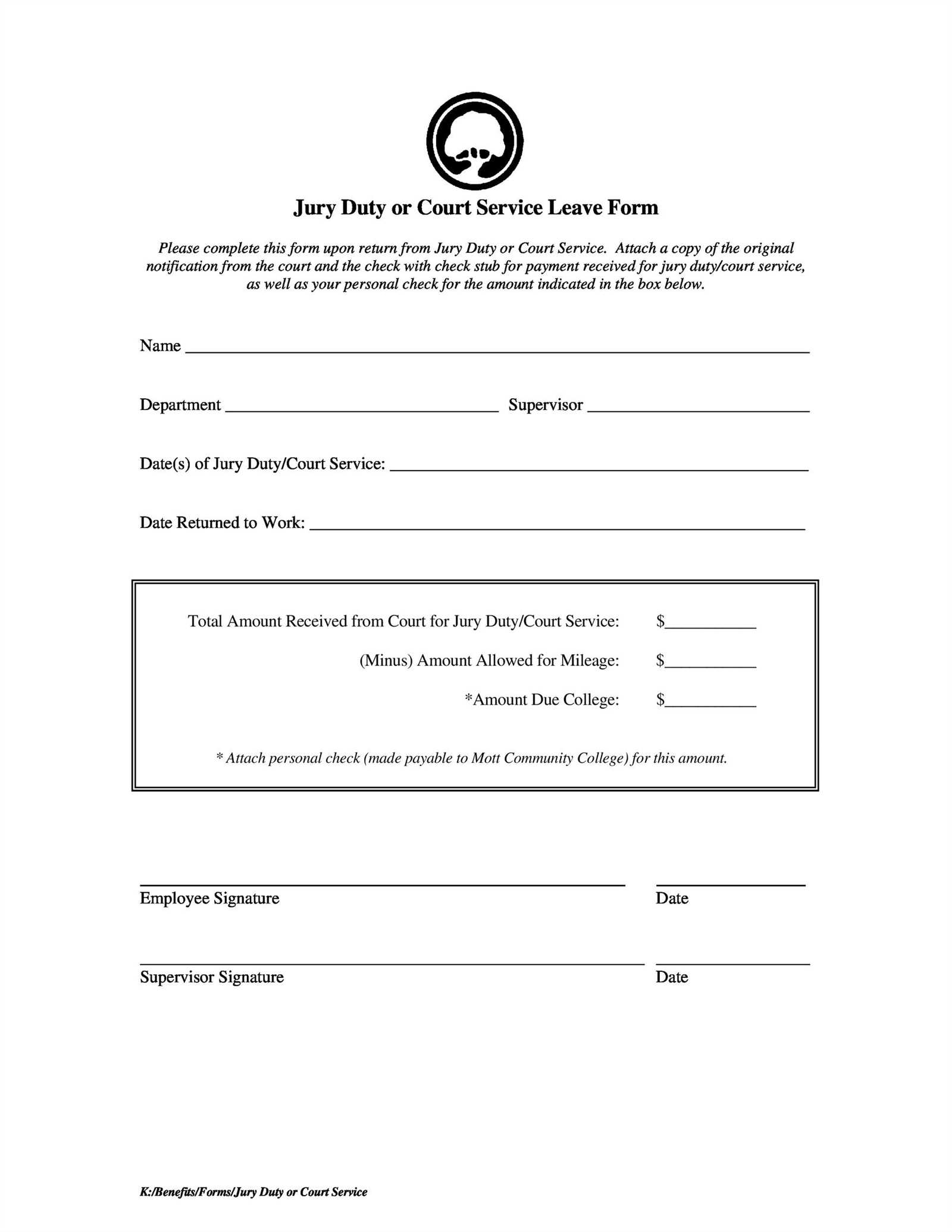
When submitting a request to be excused from a civic obligation, it’s crucial to include specific details to ensure that your application is clear, comprehensive, and professional. By providing all necessary information upfront, you increase the likelihood that your request will be processed efficiently and considered on its merits.
Each part of your communication should be precise and relevant. Here are the key elements to include:
| Detail | Explanation |
|---|---|
| Your Full Name | Include your full legal name as it appears in official records. |
| Case or Reference Number | This helps the authorities quickly locate your file and verify your situation. |
| Reason for Request | Clearly state the specific reason you are seeking deferral or exemption (e.g., health issues, financial hardship, caregiver responsibilities). |
| Supporting Documentation | Include any relevant documents that support your claim (e.g., medical certificates, financial statements, letters from employers). |
| Contact Information | Provide your phone number or email in case further clarification is needed. |
Including these details ensures that your request is both complete and clear, which can help expedite the review process. Always check for any specific instructions from the relevant authorities to ensure you’ve met all the requirements for a successful submission.
Common Mistakes to Avoid When Writing
When submitting a formal request to be excused from a civic obligation, it’s important to ensure that your message is clear, professional, and accurate. Even small errors can hinder the chances of your request being accepted. Understanding the common pitfalls will help you avoid unnecessary delays or rejection of your application.
Incomplete or Vague Information
One of the most frequent mistakes is failing to provide all necessary details or being too vague in your explanation. Always include your full name, reference number, and a clear reason for your request. Avoid general statements such as “personal reasons” without elaborating on the specific situation that prevents your participation.
Overly Casual or Unprofessional Tone
It’s essential to maintain a respectful and professional tone throughout your communication. Avoid using informal language, slang, or a tone that could be perceived as dismissive. Being courteous and respectful increases the chances of your request being taken seriously and favorably reviewed.
Additionally, ensure that your message is free from grammatical errors and typos. A well-written, error-free request reflects your attention to detail and seriousness about the process, which can contribute to a positive outcome.
How to Ensure Your Request is Accepted
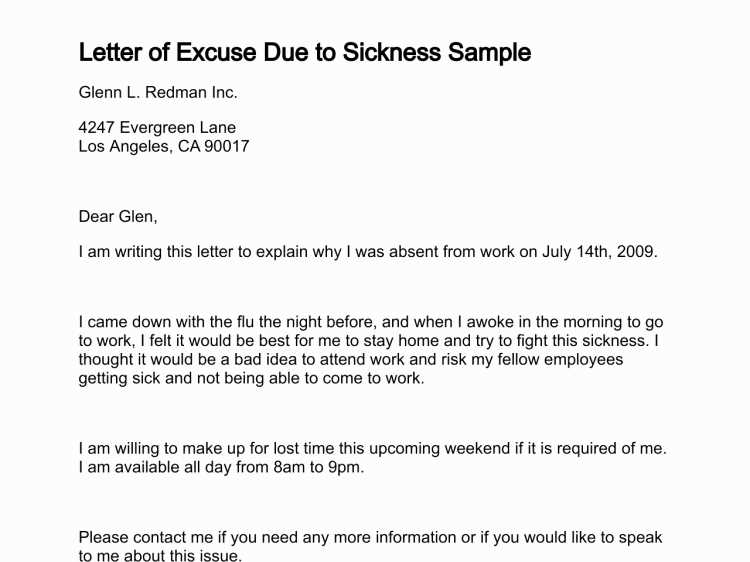
Submitting a request to be excused from a civic obligation is a process that requires careful attention to detail. While no one can guarantee approval, following certain best practices can significantly increase your chances of success. By providing all the necessary information, being clear and respectful in your communication, and adhering to official guidelines, you can improve the likelihood of your request being accepted.
Provide Clear and Valid Justifications
Ensure that the reason you provide for seeking a deferral or exemption is valid and well-supported. For example, if you are dealing with health issues, attach any relevant medical records. Similarly, if financial hardship is a concern, provide evidence of how fulfilling the obligation would affect your income. The more specific and documented your justification is, the stronger your case will be.
Follow All Instructions and Deadlines
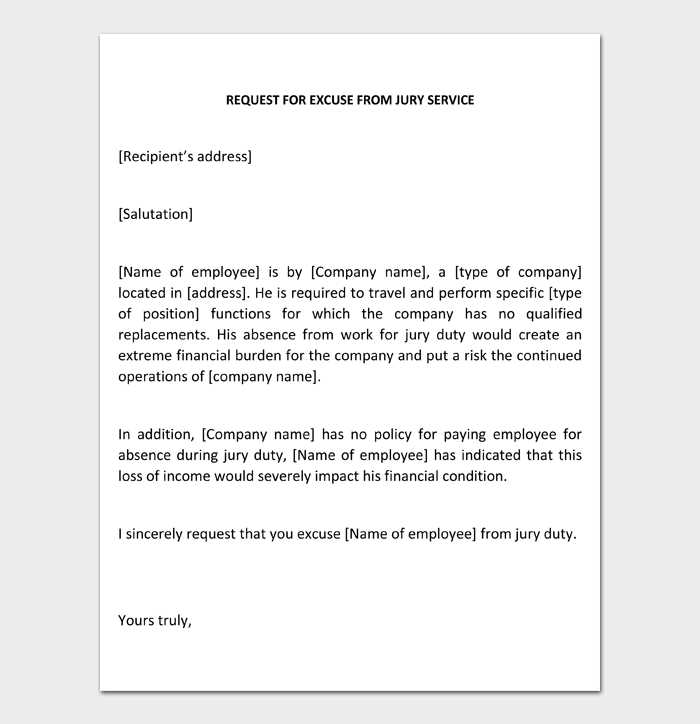
It’s crucial to adhere to any specific instructions provided by the relevant authorities. This includes formatting requirements, submission deadlines, and any requested documentation. Missing a deadline or failing to follow instructions could result in your request being rejected or delayed. Always double-check the requirements and give yourself enough time to complete the process thoroughly.
By carefully preparing your request and following these steps, you will give yourself the best chance of having your exemption granted. A well-prepared, respectful submission is more likely to be considered favorably by the authorities in charge.